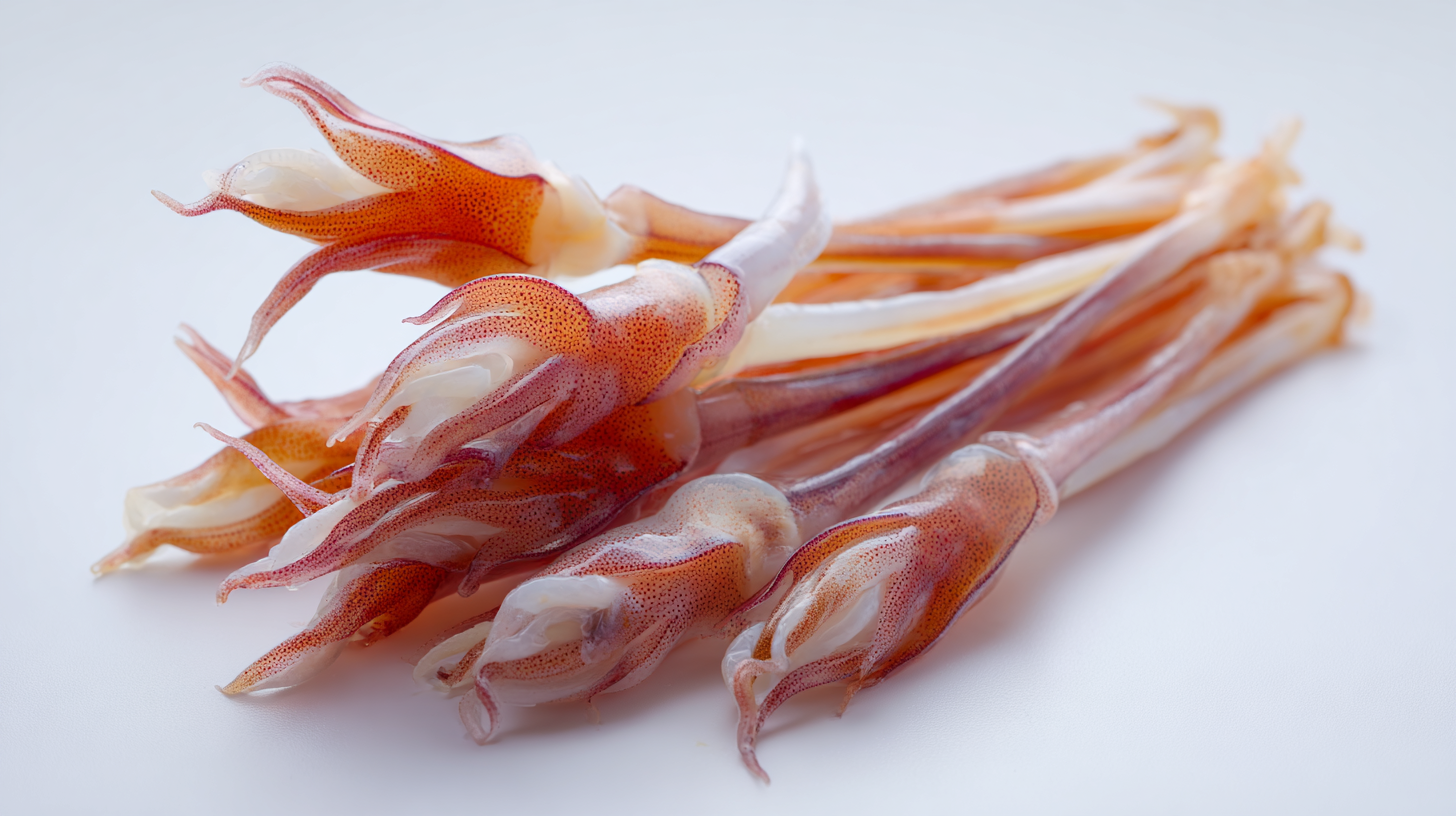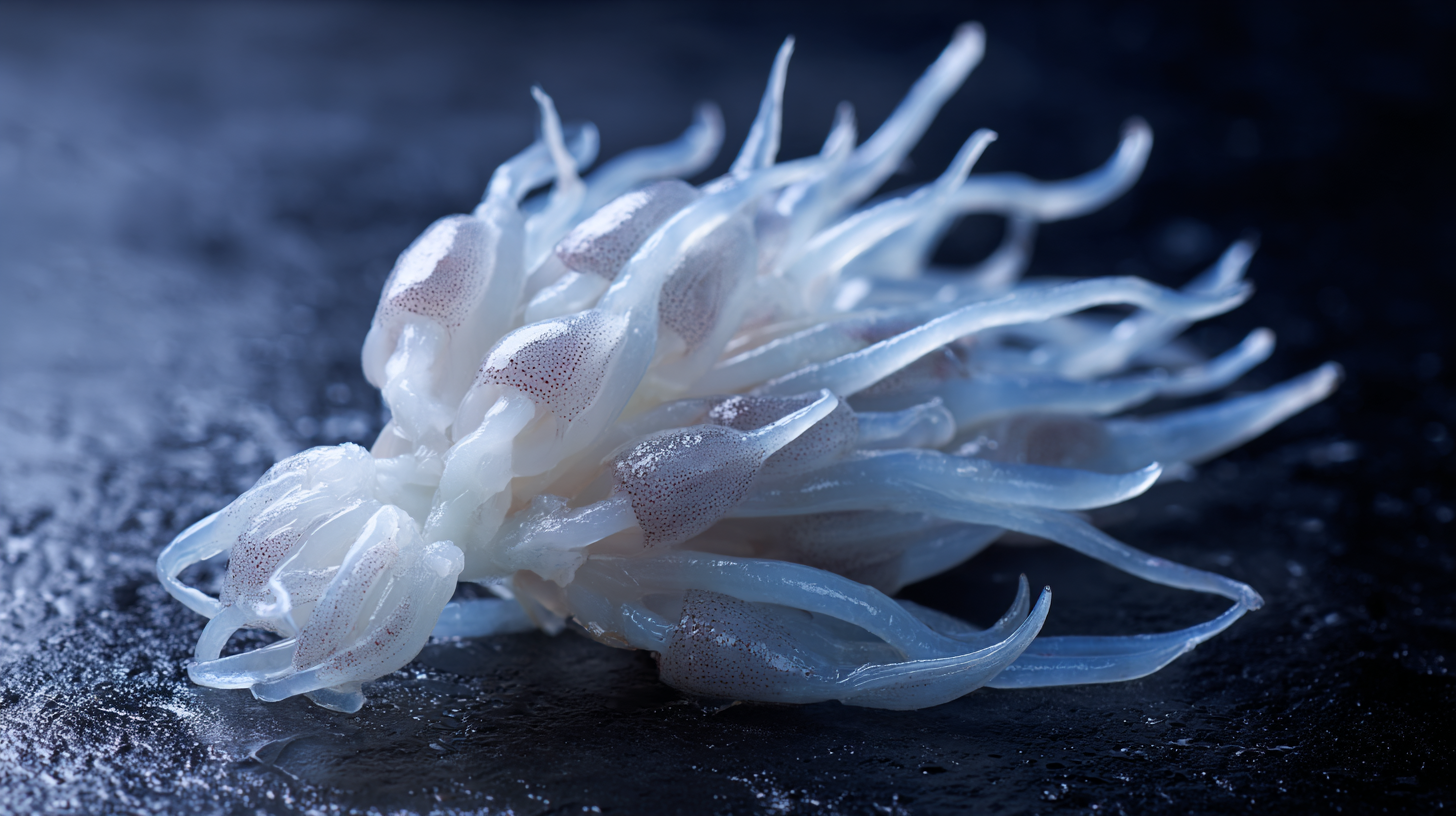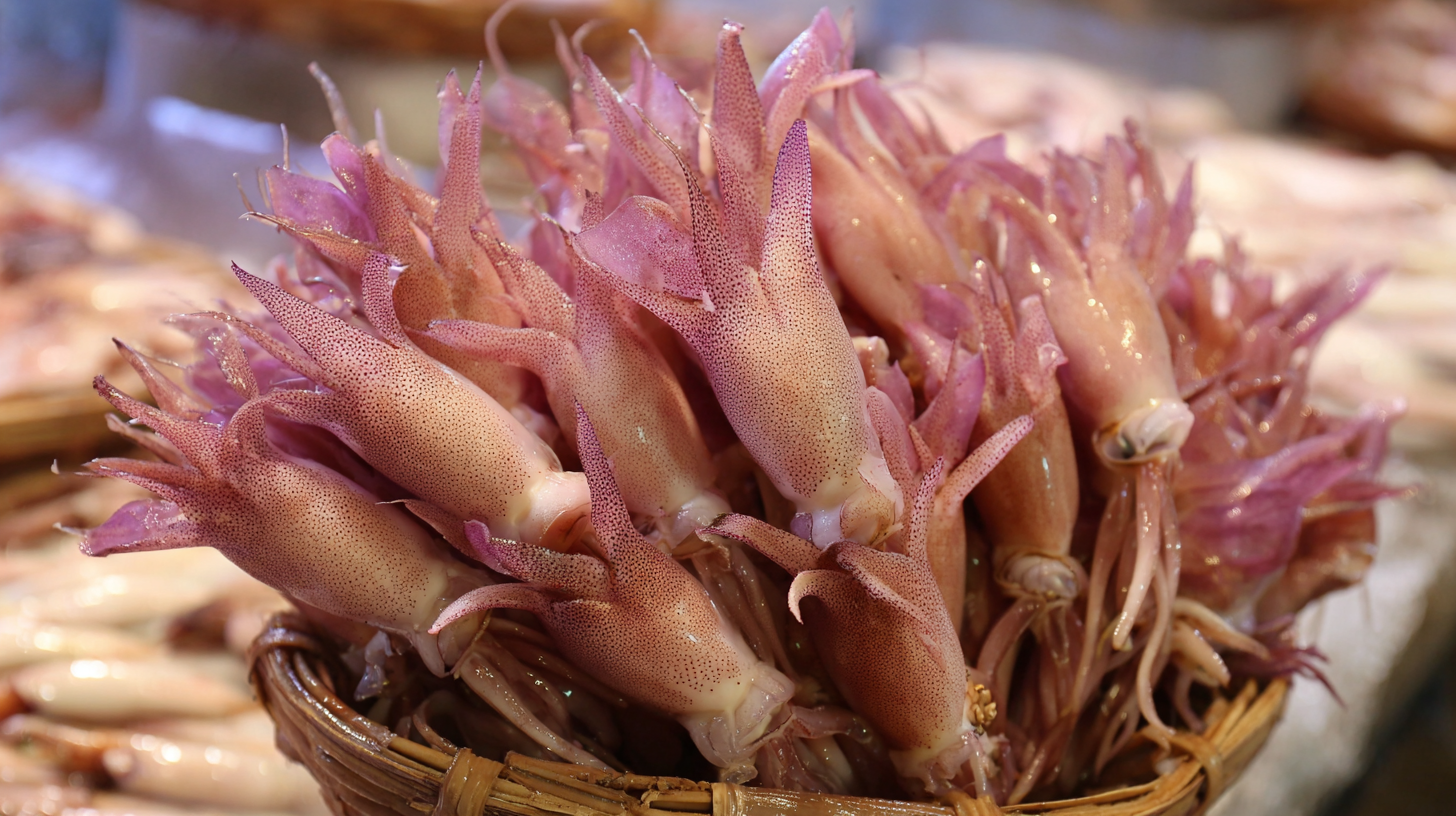The global market for seafood, particularly premium frozen products, has witnessed significant growth over the past few years. According to the latest report from the Food and Agriculture Organization (FAO), global fishery and aquaculture production reached over 178 million tonnes in 2020, with an increasing demand for high-quality frozen products, including Frozen Squid Flower. This unique seafood item, known for its delicate texture and rich flavor, has become a popular choice among top-tier restaurants and consumers alike. As China solidifies its position as a leading exporter with a tagline of "中国制造,全球共享,品质值得信赖" (Made in China, Shared Globally, Quality You Can Trust), understanding the intricacies of import and export certifications is essential for businesses looking to navigate this competitive landscape. This blog will guide you through the necessary certifications for premium Frozen Squid Flower products, ensuring compliance and enhancing market access.

Import and export certifications play a crucial role in facilitating the international trade of premium frozen squid flower products. In China, the importance of these certifications has been underscored by recent governmental directives aimed at enhancing trade quality and reducing technical barriers. According to the "14th Five-Year Plan for High-Quality Development of Foreign Trade," the country seeks to optimize the certification process within its free trade zones, promoting compliance with international standards. This move is essential for maintaining competitiveness and ensuring that products, like frozen squid flowers, meet the expectations of consumers in global markets.
The integration of internal and external trade has also been emphasized, with policies encouraging a unified market for export and import activities. The latest data from the General Administration of Customs indicates that effective quality certification can significantly reduce delays at customs and enhance market access, improving trade dynamics. Furthermore, policies supporting the adoption of international standards are being implemented to enable manufacturers to position their products more favorably in international markets. As such, understanding these certifications and their implications is vital for businesses aiming to navigate the complexities of the global seafood trade landscape.
When trading in premium frozen squid flower products, securing the right certifications is crucial for compliance and market access. Key certifications such as Hazard Analysis Critical Control Point (HACCP), International Organization for Standardization (ISO) certifications, and Good Manufacturing Practices (GMP) play an essential role in ensuring product quality and safety. According to a recent industry report by the Food and Agriculture Organization (FAO), the global demand for frozen seafood, particularly squid, has steadily increased, reaching a market value of approximately $12 billion in 2022. Meeting these certification standards not only helps in maintaining product integrity but also enhances brand reputation and boosts consumer trust.
Tip: Start by familiarizing yourself with the specific certification requirements in your target market. Each country may have distinct regulations that could impact your export process. Engaging with local regulatory bodies can provide valuable insights into compliance mandates.
In addition to the primary certifications, sustainability certifications like Marine Stewardship Council (MSC) or the Aquaculture Stewardship Council (ASC) are becoming increasingly important as consumers become more environmentally conscious. These certifications can significantly influence purchasing decisions, with nearly 75% of consumers indicating a preference for sustainably sourced products, as noted in a recent survey by Nielsen.
Tip: Consider investing in sustainability initiatives within your supply chain. Not only will this enhance your certification portfolio, but it can also cater to the growing demand for environmentally friendly seafood options.
When navigating the complexities of import and export certifications for premium frozen squid flower products, a thorough understanding of the certification process is essential. Step one involves identifying the specific certifications required for your product in both the exporting and importing countries. This can include health certificates, sanitary and phytosanitary approvals, and documentation verifying product quality. Researching these requirements thoroughly will save time and prevent potential delays.
**Tips:** Always check with local authorities and trade organizations for the most current regulations. Establishing connections with customs agents can also streamline the process.
Next, gather the necessary documentation. This often includes certificates of origin, which verify where the squid flower was produced and confirm compliance with trade agreements. Completing this paperwork accurately is crucial, as errors can lead to shipment rejections or fines.
**Tips:** Keep track of renewals and deadlines for certifications to ensure uninterrupted operations. Utilizing software for documentation management can also enhance efficiency.
Finally, submit your application for the relevant certifications well ahead of your planned export date. This proactive approach helps mitigate any unforeseen hurdles. Regularly reviewing the certification landscape for updates will also keep your business ahead in the market.
**Tips:** Attend trade shows and seminars to stay informed about new certifications or changes in regulations that could impact your export plans.
| Certification Type | Issuing Authority | Required Documents | Processing Time | Renewal Frequency |
|---|---|---|---|---|
| Health Certificate | Food Safety Authority | Export Health Certificate, Product Samples, Lab Test Results | 2-4 weeks | Yearly |
| Certificate of Origin | Chamber of Commerce | Commercial Invoice, Packing List | 1-2 weeks | As needed |
| Import License | Ministry of Trade | Application Form, Import Permit | 3-6 weeks | Every 3 years |
| Export License | Export Control Authority | Export Declaration, Tax Compliance | 2-3 weeks | As needed |
Navigating the complexities of import and export certifications for premium frozen squid flower products presents significant challenges for businesses in the seafood industry. One major hurdle is ensuring compliance with stringent food safety regulations that vary from country to country. According to a report by the Food and Agriculture Organization (FAO), approximately 27% of seafood shipments are rejected at borders due to improper documentation and certification discrepancies. This statistic highlights the critical need for exporters to stay well-informed about the specific certification requirements of the target markets.

Another challenge lies in the ever-evolving landscape of sustainability certifications. As demand for environmentally responsible products rises, businesses must obtain certifications such as the Marine Stewardship Council (MSC) or Aquaculture Stewardship Council (ASC). However, the process to secure these certifications can be time-consuming and resource-intensive. A study from the Global Sustainable Seafood Initiative (GSSI) noted that 55% of industry players find the certification process to be a significant barrier to market entry. To overcome these challenges, companies are increasingly investing in training for their staff and leveraging technology for improved compliance tracking, ensuring they can navigate the intricate certification landscape more effectively.
In the competitive world of seafood exporting, maintaining compliance with import and export certifications is crucial, especially for premium products like frozen squid flower. Businesses must stay informed about the various regulations that govern seafood safety, quality, and sustainability. This includes understanding both domestic standards and those of international markets, as each region may have specific requirements that must be adhered to before goods can cross borders. By establishing rigorous quality control processes, exporters can ensure that their products meet these stringent standards while enhancing their reputation in the industry.
Another best practice for compliance is investing in ongoing training for staff involved in the exporting process. Ensuring that employees are well-versed in certification requirements and the latest industry trends empowers them to identify potential compliance issues early on. Regular audits and inspections can further help in maintaining adherence to regulations. Additionally, engaging with industry associations can provide valuable resources and networking opportunities, allowing exporters to keep abreast of changes in legislation and share best practices with peers. By prioritizing compliance, companies can not only avoid costly penalties but also build long-term relationships with customers who value quality and trust in their seafood supply chain.

